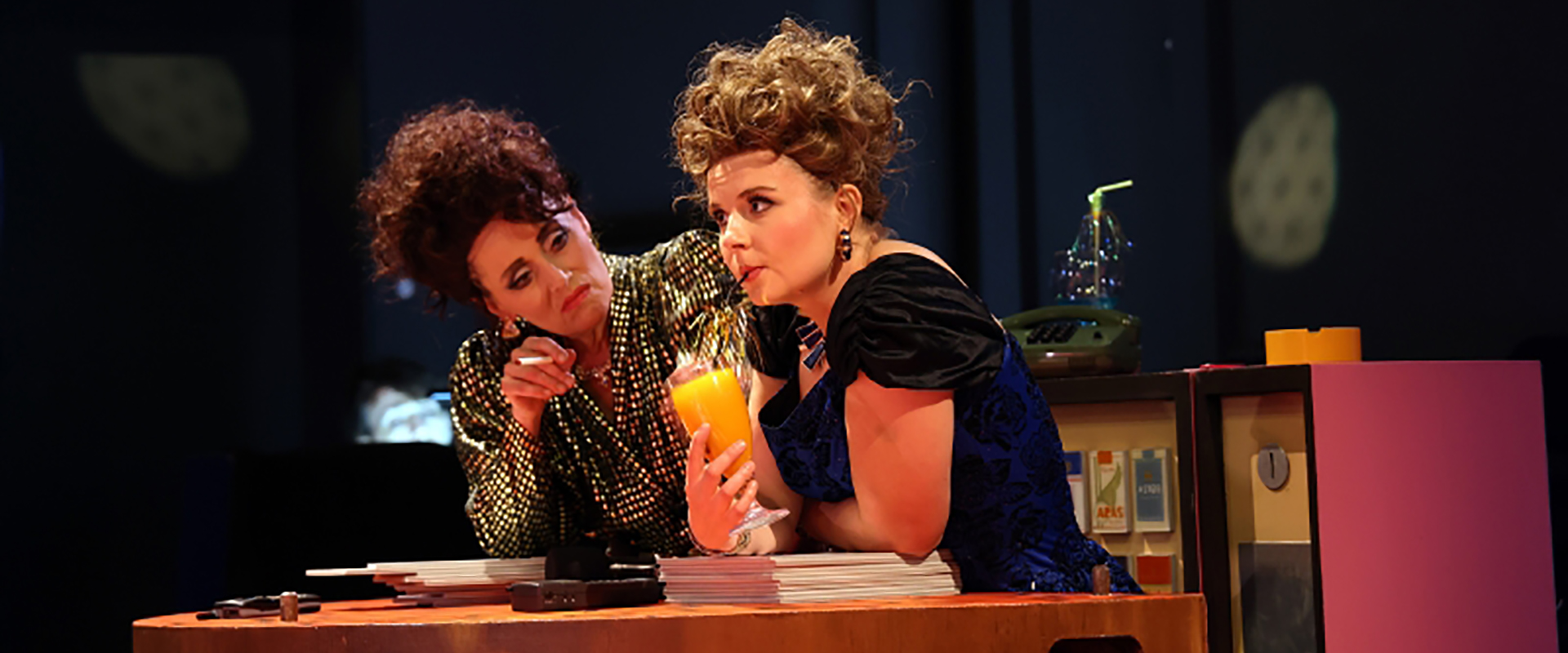 Dreaming about Brangena: Jolanta Łada-Zielke talks to mezzo-soprano Marta Świderska
Dreaming about Brangena: Jolanta Łada-Zielke talks to mezzo-soprano Marta Świderska
Which singing teacher do you owe the most to?
I started learning singing after I had graduated from a different faculty. I had previously studied violin at the Secondary Music School, but I decided to give singing a go. The first teacher I had talked to said I would have to work for years before I could get into music college. My parents advised me to consult someone else for a second opinion – similarly to a medical consultation. I came across Małgorzata Lasota who was teaching at the Secondary School of Music in Sosnowiec. She told me I could apply to the music academy after a year of preparation. During my studies, I had the pleasure of working with three singing teachers in Katowice and Frankfurt. I also attended a numer of master classes. I believe you can learn something from everyone, everyone contributes to our education. But Mrs. Małgosia remains my mainstay. If I have a problem, I can always go to her for an honest piece of advice.
How did you end up at the International Opera Studio at the Staatsoper in Hamburg?
Following my master studies in Frankfurt am Main, I wanted to join an opera studio and I took part in a number of auditions. I was initially unsuccessful, but I suddenly received three positive replies in one day: from Hamburg, Dresden and Gera. I chose Hamburg. My decision was influenced by the fact Aleksandra Kurzak had also trained with the studio. I graduated from it ten years ago.
At the end of last season, you were a guest performer in a project of the Hamburg Opera Studio – the staging of Reynaldo Hahn’s operetta “Ciboulette”.
I participated in the production as a guest. There was a very pleasant vibe during rehearsals and performances. There have always been friendly relations in the studio, and everyone has always been happy to have an opportunity to work with a friend from Hamburg on a production. During the year we were very busy. We worked on a number of projects, and we rarely saw each other. I remember that in one season I took part in as many as 13 productions at the Staatsoper in Hamburg. Our teachers emphasized that we should perform on stage as much as possible. We only prepared a studio performance – such as “Ciboulette” – towards the end of the season.
Due to the small cast, you sang the choir score, together with Gabriele Rossmanith. You were responsible for the lower parts. I admired your extraordinary skill in the chest register, but your task certainly wasn’t easy…
It was indeed a challenge. I asked our arranger Johannes Harneit, who transcribed the choir part for two voices, to give me at least one place higher than the small octave. And he said: I’m sorry, but you’re replacing the men’s choir; you will have the opportunity to show off your beautiful lower parts. It’s a pity there weren’t at least two songs with higher notes so that I could show that I also have good treble (laughing). But all in all, singing in such register is quite comfortable for a mezzo-soprano.
We have recently seen you at the Hamburg Opera as The Innkeeper in “Boris Godunov.” What is your dream role?
There are several: Amneris in “Aida”, Azucena in “Troubadour” and Ulrica. I have already rehearsed all these parts. This season, I had the opportunity to sing Brangena in Łódź. It was a concert performance, but I would love to play it on stage.
Thank you for the interview.
Marta Świderska is a graduate of the International Opera Studio at the Staatsoper Hamburg. In 2018-2019, she joined the local group of soloists, performing, among others, the roles of Mercedes (“Carmen”), Filipjewna (“Eugene Onegin”), Brigitte (“The Dead City”). She also sang the part of Bianca in Britten’s “The Rape of Lucretia” in Giessen and Nuremberg, as well as the Third Lady in Mozart’s “Magic Flute” at the Deutsche Oper am Rhein. The singer also gave concerts in philharmonic halls in Munich, Paris, Hamburg, the Concertgebouw in Amsterdam, and in Dortmund and Dresden.




